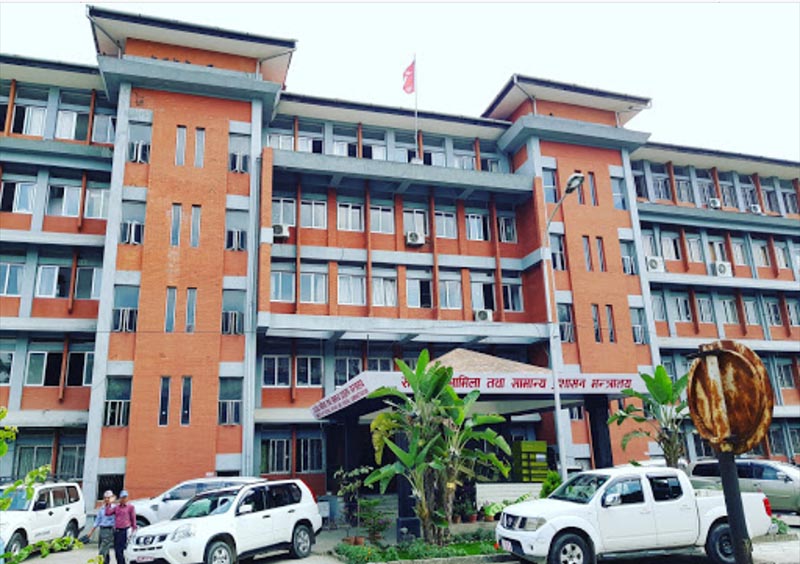Call to implement action plan against gender-based violence
Kathmandu, March 8
The Ministry of Federal Affairs has issued a circular to all local levels, directing them to strictly implement the action plan against gender-based violence to raise public awareness and mobilise people all over the country for safety and economic well-being of women.
The MoFAGA recently issued a circular to local governments in response to a request by the Ministry of Women, Children and Senior Citizens. Local levels have been provided with a copy of the action plan approved by the Council of Ministers.
Objectives of the action plan are to develop the base to create a GBV-free nation by adopting zero tolerance policy on crime against women and children for ending gender disparity, inequality and deprivation and implement state policies at federal, provincial and local levels in a coordinated manner.
Areas to be addressed by the action plan include domestic violence, violence related to foreign employment, women working in entertainment sector, all forms of sexual violence, superstitions and harmful social practices, violence against women in political and educational sectors, acid and chemical attacks and human trafficking and transportation.
According to the information posted on website of the MoFAGA, there are four strategies — prevention of GBV, promotional campaign, support to the victims and increase their access to justice — to realise the objectives set by the Government of Nepal in line with the constitutional and legal provisions.
Under GBV prevention strategy, three tiers of the government will empower women and create an environment to prevent GBV by considering the victims and affected people an agent of change. Promotional strategy will focus on honouring and awarding people who make signification contribution to prevent GBV. Support strategy of the action plan envisions necessary assistance and rehabilitation of victims and affected parties. Access to justice strategy will protect and promote human rights of the victims and affected parties by creating environment of social and legal justice for the victims.
The action plan has designated implementing and supporting agencies of the activities to be carried out throughout the country for women. Article 38 of the constitution states that no woman shall be subjected to physical, mental, sexual, psychological or other forms of violence or exploitation on grounds of religion, social, cultural tradition, practice or on any other grounds. Such act is punishable by law, and the victim shall have the right to obtain compensation in accordance with the law.
According to a recent report of Nepal Health Sector Support Programme, gender-based violence cuts across caste, ethnicity, class and socio-economic status of women and is prevalent in all geographical settings, in different forms and magnitudes. Large number of women and children in Nepal experience gender-based violence resulting in physical and psychological damage of the victims.
Nepal Demographic and Health Survey-2016 found that more than 22 per cent women above 15 years of age experienced physical violence, 26 per cent of married women experienced spousal violence either physical, sexual or emotional and 66 per cent never told anyone about their experiences or sought help.
Gender-based violence includes acts that inflict physical, mental or sexual harm or suffering, threats of such acts, coercion and other deprivations of liberty. It is intricately linked with gender norms and unequal power relations in society.






